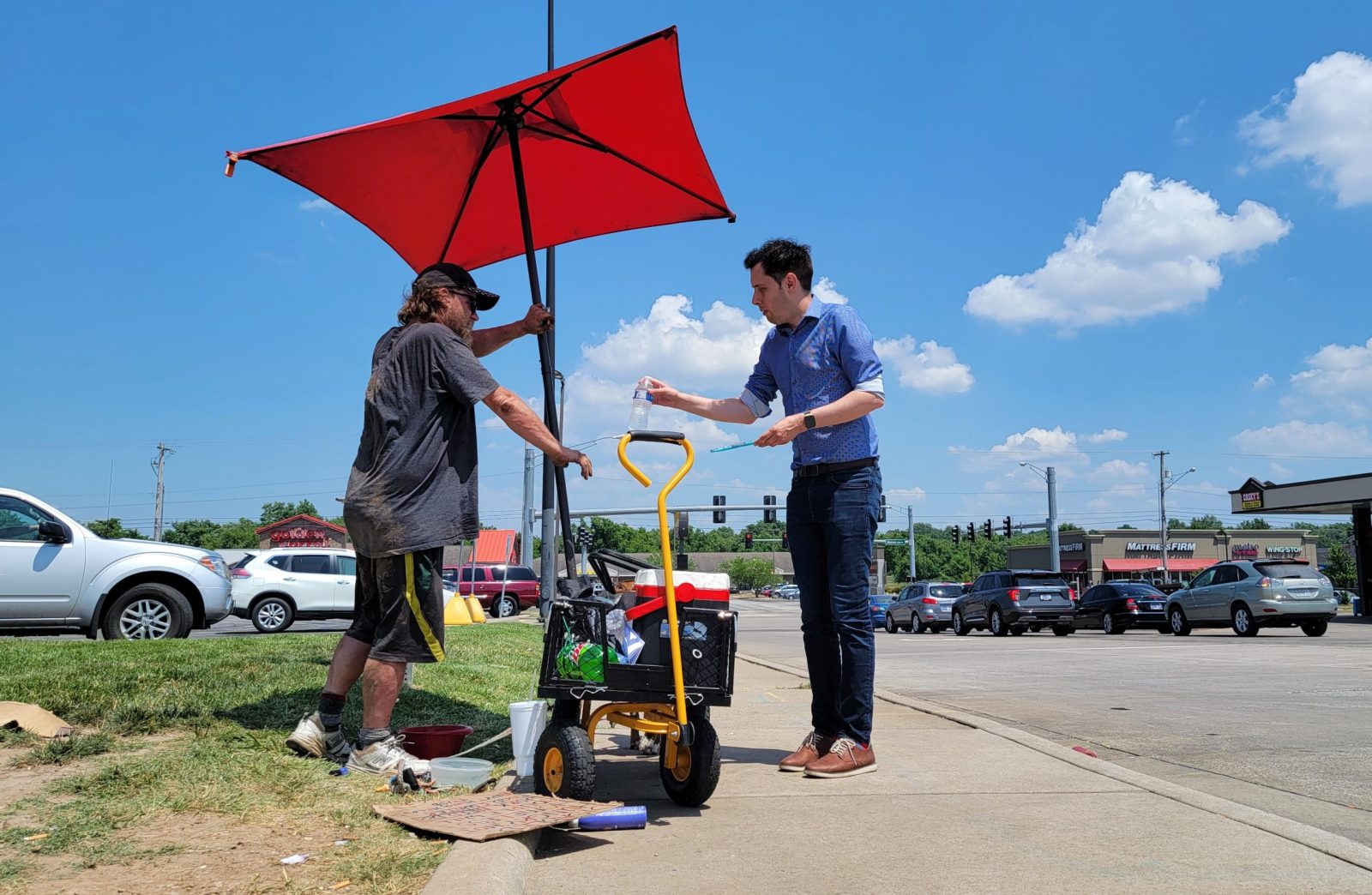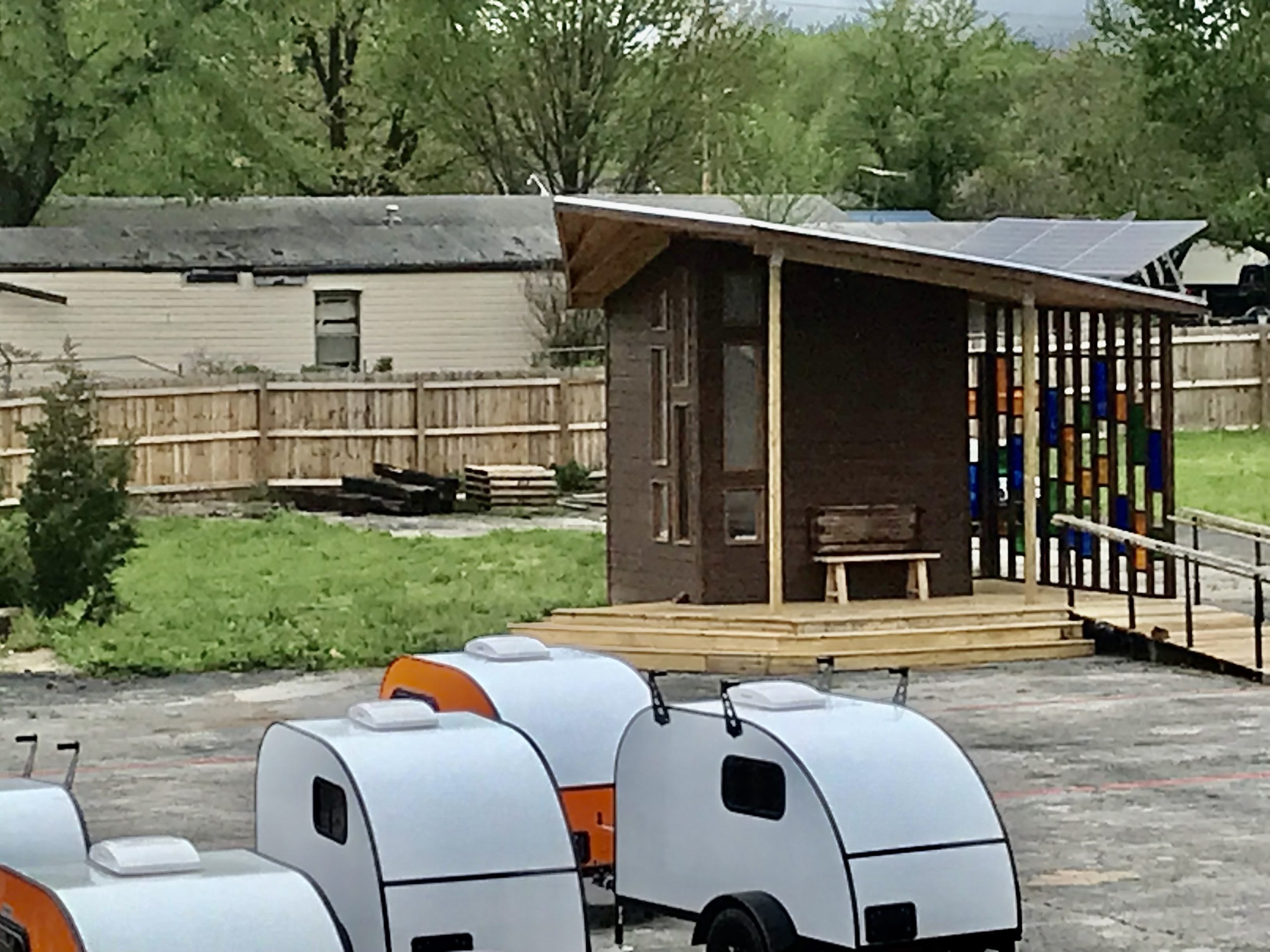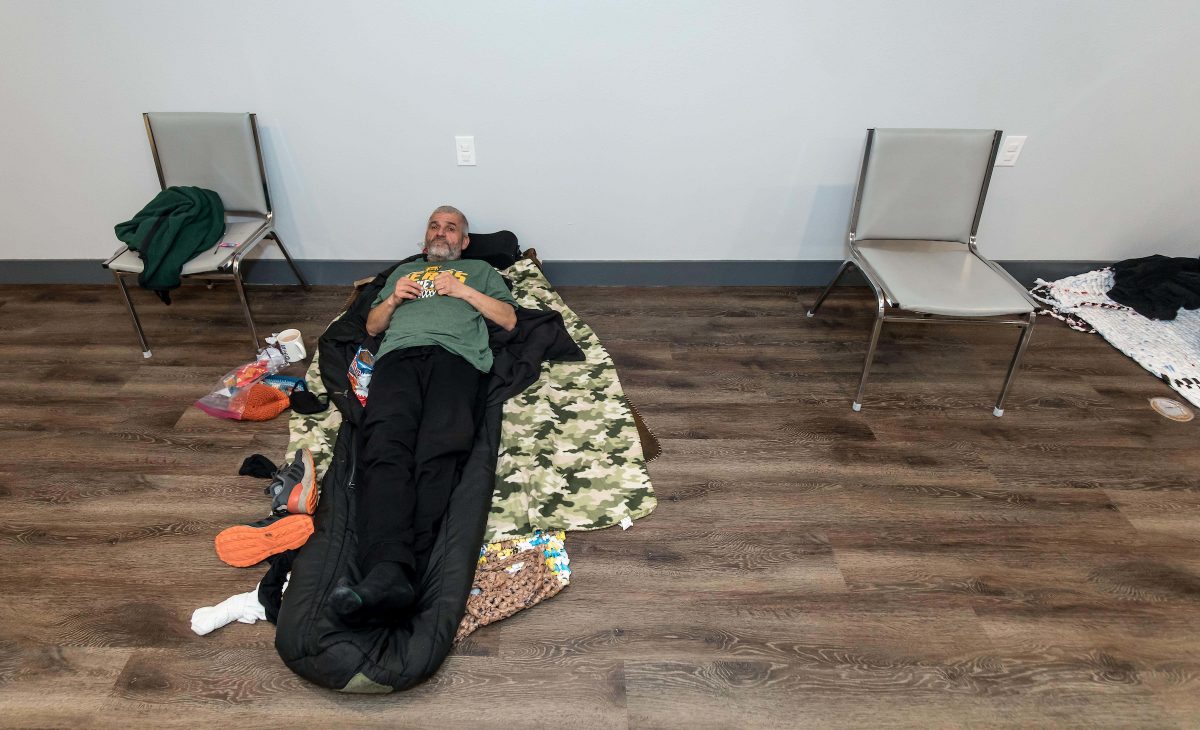Two different bills bring up to $6.5 million in funding from three different sources, all adding up to an effort to curb homelessness in Springfield.
On June 27, the Springfield City Council gave final approval to a $3.8 million bill containing one-time funds to help the homeless or those in danger of becoming homeless. The council also heard the first reading of a bill with $2.7 million in recurring funds through the U.S. Department of Housing and Urban Development (HUD). The latter bill will come up for a final council vote July 11.
As of the Connecting Grounds “street census” for June 24, there are 1,397 homeless persons in Springfield, and only 456 of them are in shelters or outreach programs.
People living in 8,230 Springfield households are also estimated to be at risk of homelessness, because they are believed to spend more than 30 percent of their monthly earnings on rent and housing costs. They fall into an income category HUD considers statistically unstable and at the highest risk for homelessness.
Bob Jones, Springfield Planning and Development Department grants administrator, said it’s estimated that only about 3,000 rental units in Springfield have rates affordable for persons living at 30 percent or less than Springfield’s median household income. In Springfield, the HUD typically moves qualified applicants from shelters into transitional housing. The houses are typically small, three-bedroom, two-bathroom houses. The waiting time for a housing voucher is usually long. It is sometimes referred to as “Section 8 housing.”
Where the money will go
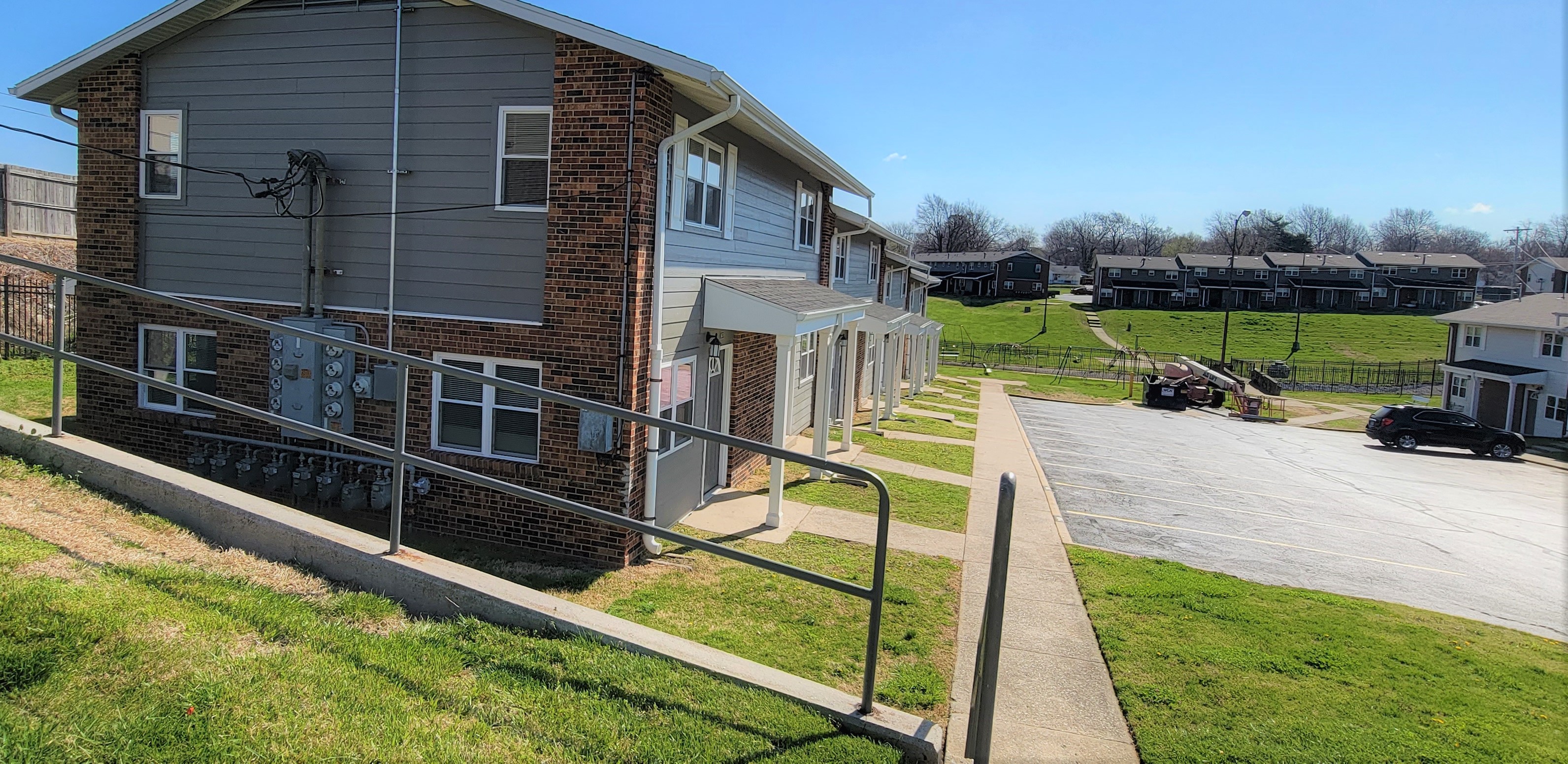
Jones broke down $1.1 million in HUD Home Investment Partnerships Program (HOME) funds and $1.6 million in community development block grants, plus the $3.8 million allocated through the American Rescue Plan Act (ARPA). HOME funds are mainly dedicated to rehabilitating affordable housing developments already in place, and to building new affordable housing in areas of cities where infill makes sense.
Eighty-five percent of the HOME funding goes for affordable housing activities, including assistance with down payments and affordable rental housing development.
“The CDBG funds provide funding for grant administration, support for neighborhoods, the One Door homeless central intake office, and in partnership with OACAC, Habitat for Humanity, Catholic Charities, we leverage their other grant funds to help up to 20 low-income households age in place with our emergency homeowner repair program,” Jones said.
The Ozarks Area Community Action Corporation (OACAC), Catholic Charities of Southern Missouri and Habitat for Humanity of Springfield will each receive $48,000 to provide “emergency home repairs.” The City of Springfield will use part of the $1.1 million for neighborhood planning and conservation, the comprehensive housing assistance program and a commercial loan program.
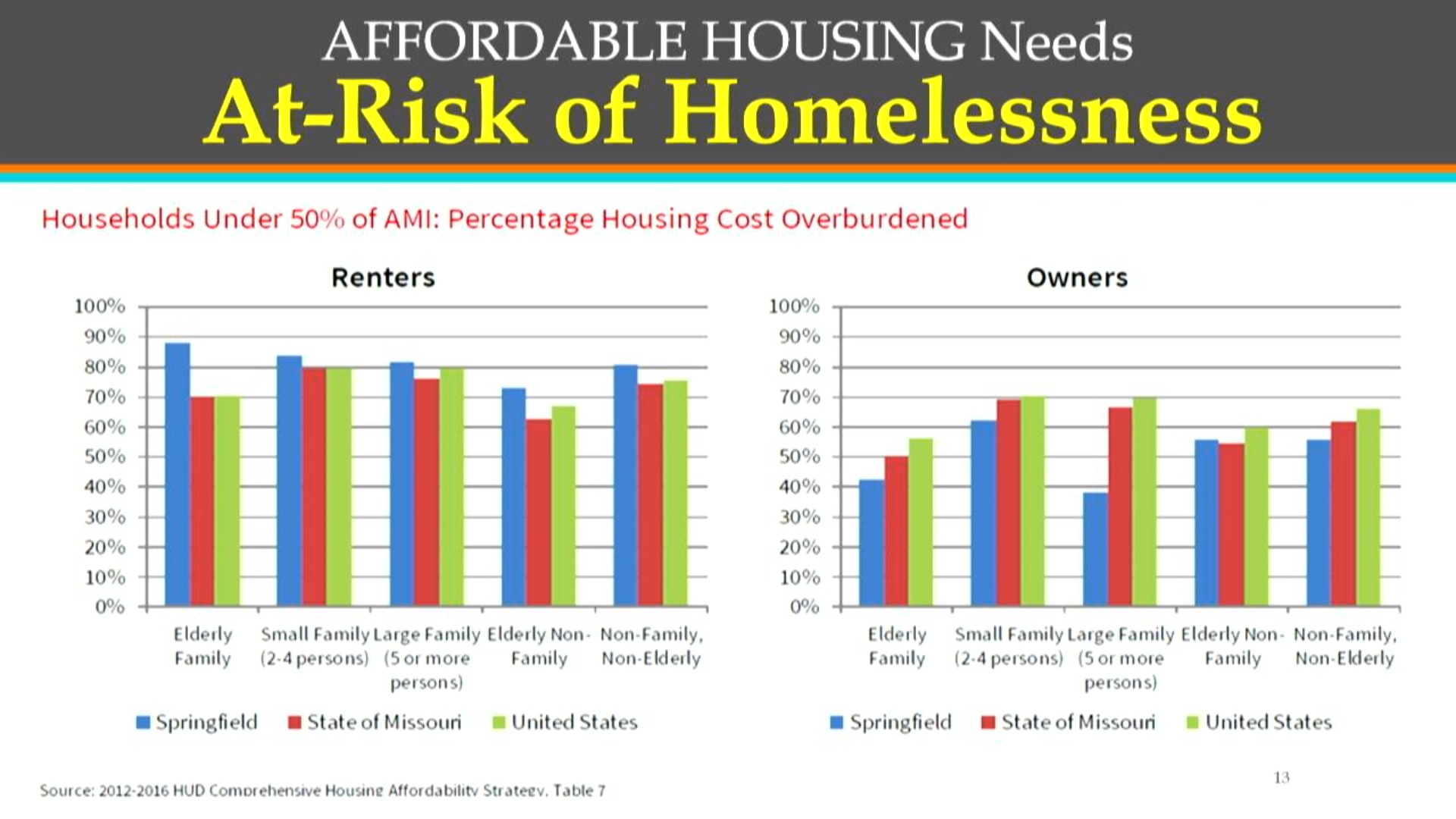
Funding decisions based on merit
Jones said Springfield is in the third year of a five-year effort to use HUD funding and community development block grants to combat homelessness. The process allows for yearly progress reports and public comments along the way.
Stakeholders presented their CDBG discretionary public service grant proposals at a joint public hearing on Jan. 11, with the City Council and the Citizens Advisory Committee for Community Development watching the presentations. After the hearing, the Springfield Planning and Development Department staff rated the projects as “high,” “medium,” or “low” priority activities using the City Council’s objectives and federal CDBG requirements as scoring guides.
While community development block grants are somewhat discretionary, they have some restrictions under federal law.
“We are pleased to be able to fund these 12 of the 15 agencies that submitted proposals,” Jones said.
Community development block grant recipients, adding up to about $207,255 in discretionary spending include the Salvation Army, Great Circle, Family Violence Center, Council of Churches of the Ozarks, Catholic Charities, Ozarks Food Harvest, the Drew Lewis Foundation, the Child Advocacy Center, The Kitchen, Bobby and Betty Allison Counseling Center, Community Partnership of the Ozarks and Big Brothers Big Sisters of the Ozarks.
Springfield will also receive about $3.8 million to combat homelessness through the Department of Housing and Urban Development (HUD) Home Investment Partnership program. The City Council voted 8-0 on June 27 to accept the HOME-ARP grant allocated through the American Rescue Plan Act (ARPA). About $2.2 million will go to shelter housing development, and another $1 million will go to rental housing development.
Grassroots leader speaks to City Council
Alice Barber is an organizer from Springfield Tenants Unite who rents a unit in northeastern Springfield. Springfield Tenants Unite is a grassroots group with a mission to ensure “safe, accessible, truly affordable homes for all Springfieldians,” according to the group's Facebook page.
“People in Springfield are struggling to stay housed and struggling to survive,” Barber said. “While I have been lucky and I have a decent job and an apartment I can afford, I have a lot of friends who are homeless right now because they lost their jobs and got evicted when they couldn’t pay rent, and friends who see their rent going up and up and up every year.”
Barber said she was concerned about the proposal for most of the block grant funding going toward charities and nonprofits.
“We do need crisis services like those provide, but we don’t only need crisis services,” Barber said. “If we only ever fund short-term, stopgap solutions like that, we’ll never actually solve the problems that create the crisis in the first place.”
Barber cited the Springfield city government action plan being used to decide funding allocations to help the unhoused.
“It says outright that there are over 9,500 households that need help, and the city’s plan only says we can help 31, and I have real concerns about that,” Barber said.
Barber suggested the City of Springfield buy and develop its own affordable homes that would be city-owned or city-subsidized. This practice, she said, would help keep rent prices down as private landlords and property management corporations would have to compete with city-subsidized housing rents.
Barber also pushed for permanent supportive housing for Springfield’s homeless population. Permanent housing developments have controlled rent costs and offer programs for their residents, including child care, medical assistance and job search programs.
Zone 2 Councilman Abe McGull, also the sponsor for the City Council bill to accept the federal funding to combat homelessness, thanked Barber at the end of her allotted speaking time and asked that she contact him for more discussions.
“You brought us some great ideas,” McGull told Barber. “We do have a housing study that is in the works, that we’re planning on getting the results of that shortly, but I look forward to more engagement with you.”


